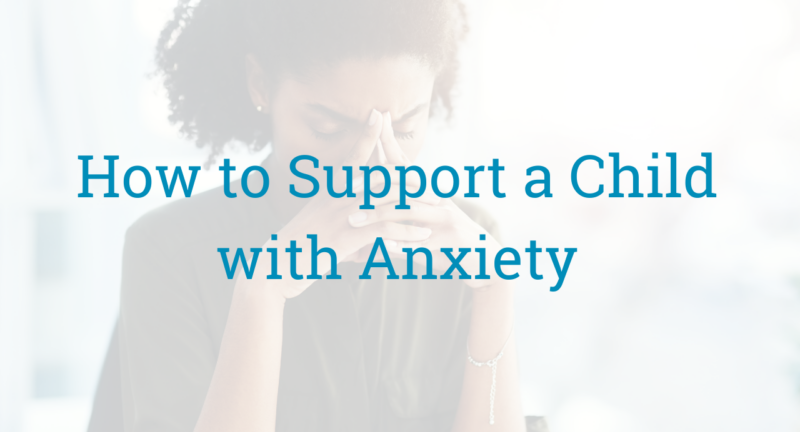
How Teens Can Deal with Back-to-School Anxiety
An upset stomach. Nightmares. Unrelenting desire to avoid school. Difficulty sleeping. These are all examples of how anxiety can manifest in teens. Sometimes, these signs of anxiety are mistaken for symptoms of another condition. For example, you might think that your stomachache was caused by something you ate. The truth, though, is that anxiety can be hidden in plain sight, and as we enter back-to-school season, you might start to see the signs of back-to-school anxiety.
Whether you’re starting your final year of junior high or starting your first year of college as an 18-year-old, anxiety can flare up during the back-to-school season. In this article, we share tips and strategies for reducing anxious feelings during the school year.
1. Practice Deep Breathing Exercise
When people (teens or otherwise) feel anxious, they may subconsciously take shallow, quick breaths. These chest breaths can increase heart rate, muscle tension, and even contribute to dizziness. Taking slow, deep breaths can help you shift from chest breathing to abdominal breathing. When teens slow down their breathing, it helps to shift out of flight or fight mode so their body can relax. Isn’t science cool?! Slow, deep breaths — that’s the key!
You can do square breathing or triangle breathing, or you can follow along with guided meditations. The following videos are cute ways to introduce the idea of deep belly breathing to young children.
2. Spend Time in Nature
Nature is healing, and it can do wonders for easing anxious thoughts. Sometimes teens benefit from simply changing up the scenery. You might even considering doing some homework outside after school if the weather allows for it. As you breathe in the fresh air, feel the breeze rustle your hair, or listen to the birds chirp, your thoughts are gently calmed.
This is a great opportunity to practice a grounding technique. Monica Clark, LPA, explains this technique:
If you find yourself beginning to lose focus, ground yourself in the moment. One effective grounding technique is the 5-4-3-2-1 Game. In this technique, you ground yourself in the physical environment by naming:
- 5 things you can see
- 4 things you can hear
- 3 things you can feel against your skin
- 2 things you can smell
- 1 thing you can taste
Describe the smells, find green leaves, describe the texture of a pebble.
3. Talk about What Anxiety Is
“Anxiety is often regarded as something that is bad and should be eradicated completely. However, anxiety by itself isn’t necessarily bad. Anxiety is actually an emotion that helps us take care of dangerous situations — and respond to those situations. If we are aware of a potentially dangerous situation, we can avoid harm,” says Dr. Dan Guy.
In other words, worry and fear is designed to help us avoid potentially dangerous situations. For example, a stray dog charging at your may instill fear, and it’s that fear that ignites flight or fight mode — so you can take flight to safety. Problems arise when anxiety and fear is triggered outside of dangerous situations — like feeling physically anxious even if there isn’t a dog nearby.
It’s tempting to remove all anxiety triggers because we don’t want to be unhappy, but the goal is to help manage anxiety because experiencing some degree of anxiety is part of what it means to be human. For example, if you feel anxious about this school year, you may ask to skip a day of school. While skipping a day of school might temporarily ease your mind, it won’t be helpful in the long-term nor will it help you manage anxiety. Instead, it’s more helpful to learn how to manage anxiety.
4. Exercise More
Exercise is good for your body and mind — and that’s true for teens too. The above video depicts an easy at-home workout that you can perform after school without any equipment needed! But that’s not the only option. Other good-for-the-brain exercises include:
- Hiking
- Playing sports like soccer or basketball (even if it’s in your backyard)
- Rollerblading
- Biking
- Dancing
- Jump rope
Walking around the block is a good option too!
5. Focus on Good Nutrition
Good nutrition impacts your mental health too! In fact, there are plenty of tasty brain-healthy foods, such as:
- Salmon
- Yogurt
- Turmeric
Not all teens enjoy salmon, but a yogurt-lemon-dill sauce may make the salmon more appetizing for those who aren’t used to eating it. You can also make salmon loaf, which eliminates the fish texture that you might not like.
TIP: If you have a stomachache caused by anxious thoughts, you may not feel like eating. If that’s the cause, try more bland foods (like chicken noodle soup) or a warm cup of chamomile tea.
6. Read a Book
Teens can learn important life lessons through reading — plus, reading is a good relaxing activity! Review this list of books via NowPysch, and you might discover some great books for teens with anxiety.
7. Create a Safe Space
If you are feeling overwhelmed, you may benefit from a cozy place to unwind after school. From fidget spinners to books to coloring books, this can be a great way for teens to process all of their thoughts after school — rather than jumping right into homework or chores.
8. Ask for Individual Accommodations
For some teens, accommodations at school can make all the difference when it comes to anxiety. For example, if a student struggles with performance anxiety, he or she may not do well when taking tests. Some students benefit from individual accommodations such as extended time on tests. For other accommodations for kids who struggle with anxiety, check out this list from The Children’s and Adult Center for OCD and Anxiety.
9. Practice Good Sleep Hygiene
Poor sleep and anxiety often go hand-in-hand. Anxious thoughts can make it difficult to sleep, and poor sleep can exacerbate the symptoms of anxiety. Help your child practice good sleep hygiene, including:
- Going to bed at the same time every night
- Using warm-colored lights during his or her bedtime routine
- Sleeping in a cool, dark room
10. Go Over New Changes
Reduce back-to-school anxiety by going over any new changes with your parent or teacher. Maybe you feel unsure about the new rules at school. Sometimes just a quick refresher on what’s expected can go a long way in feeling confident about the new school year.
11. Reach Out to Us
The good news about anxiety is that it can be treated with therapy, medication, and lifestyle changes. With the right support and strategies, most teens are able to develop strategies that help them manage their anxiety both in the classroom and at home.
Here at Next Step 2 Mental Health, we provide comprehensive mental health care for children (and teens too!). Whether you are just now experiencing anxiety for the first time, or is seeing a resurgence in symptoms, we can help you get the relief you deserve. Call 502-339-2442 or send us a message to request more information.
Related Posts
Seasonal Marketing and Social Media: Navigating the Perfect Storm for Fall Anxiety
Is the thought of the upcoming holidays (and all of the marketing associated...
How to Support a Child Recently Diagnosed with Anxiety
When a child is diagnosed with anxiety, it can be a challenging and emotional...


